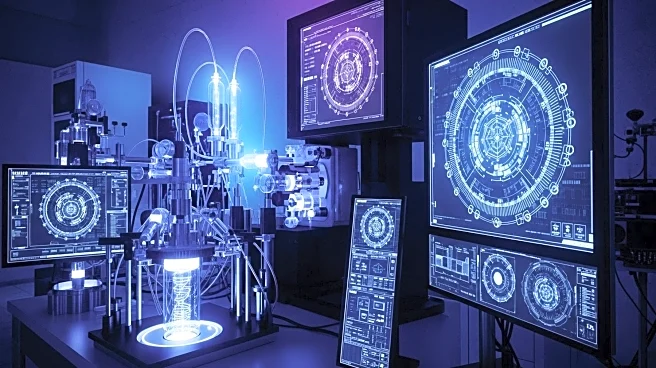What's Happening?
The QROCODILE experiment, led by the University of Zurich and the Hebrew University of Jerusalem, has achieved unprecedented sensitivity in detecting light dark matter. Using superconducting detectors cooled to near absolute zero, the experiment has set new limits on how dark matter interacts with ordinary matter. The experiment recorded unexplained signals, which, while not confirmed as dark matter, allow researchers to set world-leading limits on light dark matter interactions. The project aims to further enhance its capabilities with future upgrades and move the experiment underground to reduce cosmic ray interference.
Why It's Important?
This experiment represents a significant advancement in the search for dark matter, a substance that constitutes about 85% of the universe's mass but remains largely undetected. By setting new constraints on light dark matter, the QROCODILE experiment opens new avenues for understanding the fundamental components of the universe. The findings could lead to breakthroughs in physics, potentially altering our understanding of the universe's composition and the forces that govern it.
What's Next?
The next phase of the project, NILE QROCODILE, will involve enhancing the detector's sensitivity and conducting the experiment underground to shield it from cosmic rays. These improvements aim to distinguish true dark matter signals from background noise, moving closer to a definitive discovery of dark matter.








